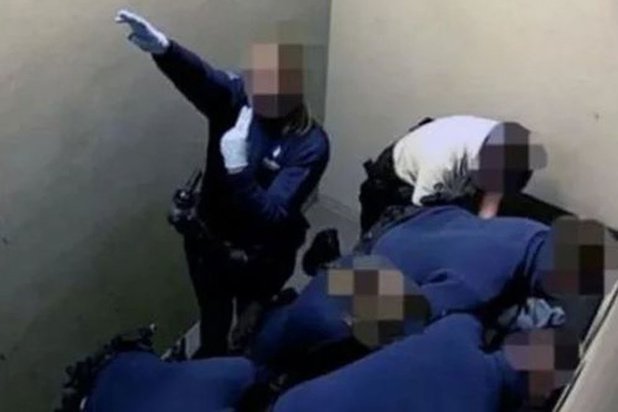There was no attempt by investigators to cover up any aspect of the case of Jozef Chovanec, the Slovakian man who died after a police intervention at Charleroi airport in 2018, the High Council for Justice has reported.
Jozef Chovanec was rushed to hospital in February 2018 after he had been heavily subdued by a group of police officers who held him down and sat on him in a police cell at the airport. He died later in hospital.
In July this year, footage was leaked of CCTV images of the incident in the police cell at the airport, showing what led up to the police intervention and ultimately to Chovanec’s death. In addition, the footage shows a woman police officer giving a Nazi salute.
The judicial investigation into the matter is still ongoing, and it is unprecedented for the High Council to undertake its own investigation while that is the case.
However they were looking into a different aspect of the matter: whether there had been an attempt to cover up any possible wrong-doing in the case.
Following the release of the CCTV footage, questions were asked about the reaction of Jan Jambon, home affairs minister at the time and minister-president of Flanders now. Jambon first said he knew nothing of the case – which would have been extraordinary from a political point of view – and then admitted he had been informed but had not made the link with the new footage.
The question persisted: What did Jambon know and when did he know it?
The High Council has now concluded that “The High Council was unable to determine any attempt to withhold any information at all, whatever it might be”.
Since the investigation is still under way, the High Council has nothing to say about the facts of the case. It does, however, make some suggestions as to how such investigations might be improved in the future.
Those include:
Guidelines for prosecutors who must take the first measures when they are made aware of complications associated with deprivation of liberty.
The active leadership of the judicial investigation by the investigating judge and the systematic follow-up of such cases by the public prosecutor's office and the indictment chamber also deserve more attention.
Judicial authorities must also communicate constructively with each other. “After all, in the Chovanec case it appeared that a lack of communication resulted in no one reporting the so-called ‘Nazi salute’ immediately after the facts with a view to a possible disciplinary investigation,” the report concludes.
• The High Council for Justice, set up in 1999 in the wake of the revelations in the Marc Dutroux case, is made up of 44 magistrates and judicial officials. Its role is to exercise external control over the functioning of the judicial authorities, including through the handling of complaints; to provide advice for a better functioning of the justice system; and to oversee the objectivity of judicial appointments and ensure appropriate staff training.
Alan Hope
The Brussels Times

